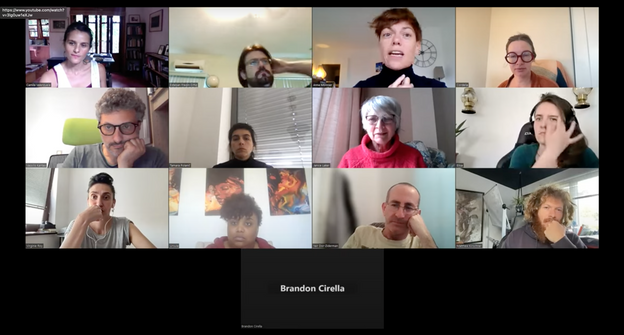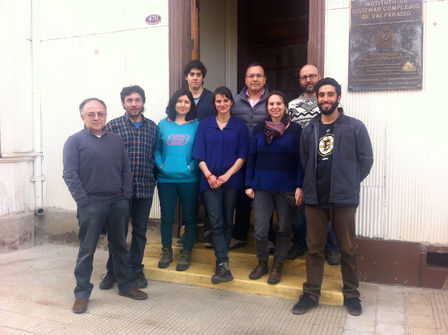
What is Micro- phenomenology?
Microphenomenology is a method for studying subjective experience developed in the field of cognitive science. It is characterized by its practical approach: it uses and develops specific tools and procedures that help a person connect with and describe their experience with great precision. It derives from "L'entretien d'explicitation," an interview method developed by the French psychologist Pierre Vermersch to investigate the procedural aspect of learning and problem-solving. It was later developed in the context of cognitive science by Claire Petitmengin as part of the neurophenomenology project, a research program proposed by Francisco Varela to develop a science of consciousness. Currently, this method is used in various fields of knowledge, allowing for the establishment of bridges between different disciplines.
TRAINING
This training, developed in collaboration with the Micro-phenomenology Lab Led by Claire Petitmengin , this course addresses the techniques for conducting and analyzing microphenomenological interviews applied to research development. The course content is organized into thematic modules: one on conducting and one on analyzing interviews , reinforced by practice and supervision (P&S) sessions and an optional certification process .
In general terms, the modules are characterized by the integration of theoretical and practical knowledge, from which participants are progressively introduced to the framework, key conceptualizations, and procedures of the methodology. Teaching and learning strategies are proposed, which include theoretical presentations, small-group exercises, group discussions, and individual work.
Practice and supervision (P&S) sessions are feedback spaces that offer the opportunity to raise questions and share observations regarding the topics and practical exercises developed in the modules and in the required independent work. Participants are encouraged to propose exploring experiences related to their research questions; work on an interview plan or guide; and/or review a previously conducted interview to analyze its implementation.
The certification process involves conducting a short research project using the microphenomenological method. Participants are guided through the formulation of a research question, the design of an experiential protocol, and the reporting of results. As part of this process, participants' skills in conducting and analyzing microphenomenological interviews are assessed.
The training provides learning experiences to a group of participants who typically work in different disciplines and countries, creating a space for exchange and dialogue where the methodology is learned in a highly enriching context.
You can download the training program here.
Camila Valenzuela
Teacher
Camila learned this method from Claire Petitmengin and Pierre Vermersch while completing her PhD in France, between 2008 and 2012. Since then, she has used this methodology in various studies related to body awareness and pain, particularly exploring the possibilities and limitations of the method in the study of bodily experience.
He has been teaching this methodology continuously for more than ten years, developing a unique teaching structure and method with which he has trained more than 200 people from different countries.
Since 2023, together with Claire Petitmengin, she has established the certification process for this method, awarded by the Microphenomenology Laboratory. Since 2024, she has been in charge of the microphenomenology certification process.















